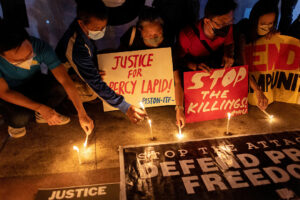Opening new avenues for film discussion

IN ORDER to document today’s knowledge on Philippine film and the moving image, one would have to simultaneously focus on its history, its contemporary situation, and its future.
This is the very goal of film scholar and programmer Patrick F. Campos, who is editing the PELIKULA journal.
“I keep to heart researchers and readers 50 or 100 years from now so that they will have a resource to look back on to gain significant insight into what was happening during a specific conjuncture,” Mr. Campos told BusinessWorld in an online interview.
Published by the University of the Philippines Film Institute (UPFI), of which Mr. Campos was previously director, PELIKULA was revived in 2019 a full 20 years since it first began its short stint in 1999.
Since then, it has been tasked with commemorating Philippine cinema’s 100th anniversary, chronicling the alternative filmmaking movement spurred on by red-tagging and lockdowns, and celebrating the many films that have depicted momentous cultural changes over the last few years. The project, curated for specialists and general readers alike, publishes academic research, thought pieces, reviews, interviews, and visual essays. And it is no small feat to put together.
“As far as the last five volumes I’ve edited since 2019 are concerned, the vision has been to catalyze knowledge production on film and the moving image for posterity and the future,” Mr. Campos said.
In Volume 8, which comes out by the end of 2023, performance and film scholar Loujaye Sonido and programmer Merv Espina put together sets of essays on dance films, recorded choreography, experimental moving images, and multimedia works.
Another group of articles will revisit the history and productivity of sex cinema, known colloquially as bomba films. It will also tackle its political, economic, and commercial implications.
Mr. Campos said that PELIKULA emphasizes “looking at Philippine films in comparative ways, as regional phenomena, and through the lenses of history and politics.
“It explores new avenues for thinking and talking about Philippine cinema and the moving image, alternative questions we’ve not really pursued,” he said.
While the journal takes the form of a digital-format magazine, it is still academic, which means it publishes and highlights original research under a peer-review process.
On a poignant note, the eighth volume of PELIKULA is dedicated to the memory of oral historian, film programmer, cultural organizer, and archiving and regional filmmaking advocate Teddy Co, who passed away in November.
“He had been a supporter of PELIKULA’s revival in 2019. He understood that a cinema does not only succeed because of the films; it flourishes because of the film culture and the cinephiles surrounding it,” said Mr. Campos.
Volume 8 of PELIKULA: A Journal Of Philippine Cinema And Moving Image is coming soon this holiday season. For updates, visit pelikulajournal.com or https://www.facebook.com/pelikulajournal. — Brontë H. Lacsamana




